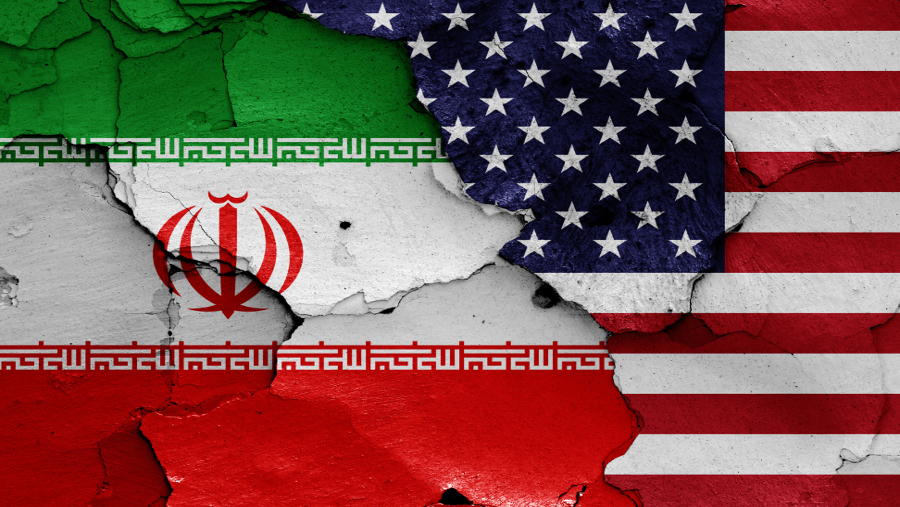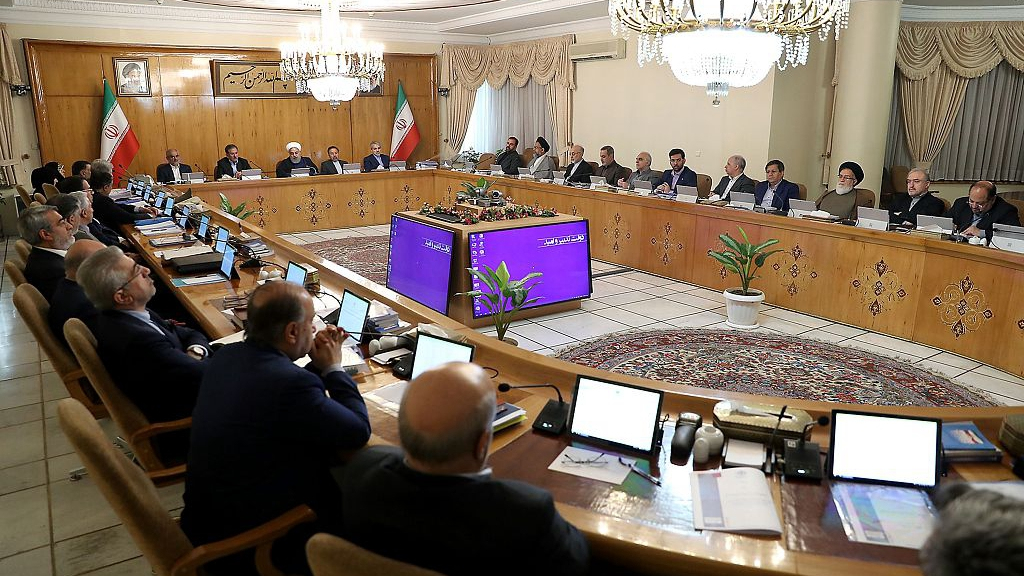
Middle East
18:18, 08-May-2019
Decoding the U.S. policy of 'maximum pressure' against Iran
By Nayan Seth, Li Jingyi
02:22

Relations between the U.S. and Iran have worsened in the last year. In May 2018, U.S. President Donald Trump overturned one of the biggest foreign policy decisions by his predecessor Barack Obama.
Read more:
The U.S. officially withdrew from the 2015 Iran nuclear deal. Trump blamed Iran for continuing its military expansion and waging a proxy war in the Middle East. Since then, the U.S. has followed a policy of putting "maximum pressure" on Iran.
Soon after America's exit from the deal, Secretary of State Mike Pompeo unveiled a new Iran strategy which many analysts saw as an attempt to create confrontation.
"We will track down Iranian operatives and their Hezbollah proxies operating around the world and we will crush them. Iran will never again have carte blanche to dominate the Middle East," said Pompeo.

Iranian President Hassan Rouhani chairing a meeting with his cabinet in Tehran, Iran, May 8,2019. /Iranian Presidency Photo
Iranian President Hassan Rouhani chairing a meeting with his cabinet in Tehran, Iran, May 8,2019. /Iranian Presidency Photo
The policy laid out multiple pre-conditions for Iran. The demands included the release of American detainees, expanding the access given to nuclear inspectors, effectively ending its ballistic missile program and pulling its forces out of Syria.
As expected, Iran rejected it and blamed Trump for escalating tensions.

In August last year, Trump announced the re-imposition of sanctions against Iran. And then in November, the U.S. slapped its biggest ever economic penalties targeting the Iranian oil industry. Any company doing business with Iran would be banned from doing so with the United States.
In April, Trump stepped up the pressure by designating Iran's elite Revolutionary Guards Corps as a foreign terrorist organization. Iran responded by labeling American forces in the Middle East as terrorists.
Also last month, Iran threatened to close the Strait of Hormuz, a strategic waterway which carries a fifth of the world's oil shipments. But the Trump administration remained unfazed.
Last week, the U.S. refused to provide any further waivers to the biggest buyers of Iranian oil, inflicting another blow to the Iranian economy.

SITEMAP
Copyright © 2018 CGTN. Beijing ICP prepared NO.16065310-3
Copyright © 2018 CGTN. Beijing ICP prepared NO.16065310-3